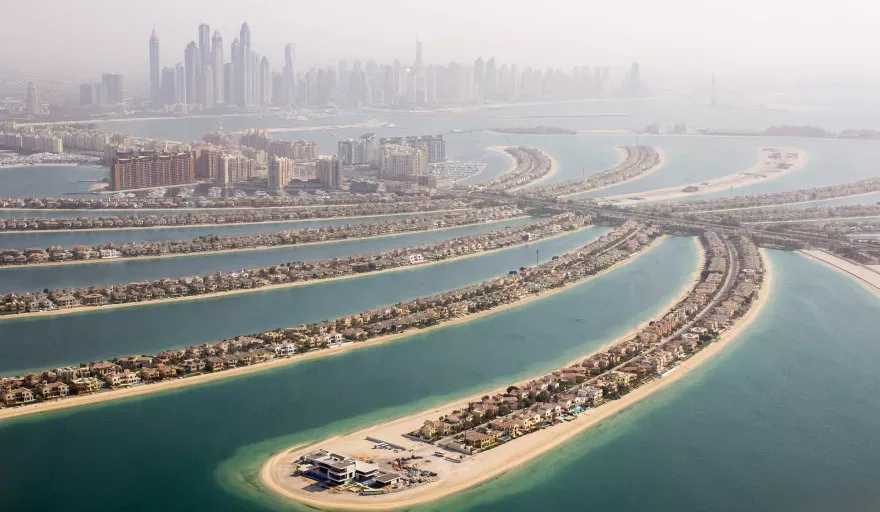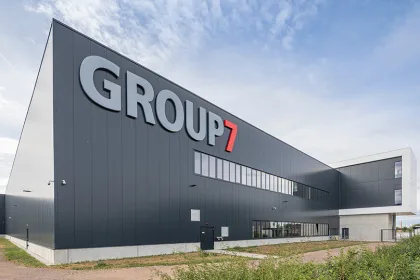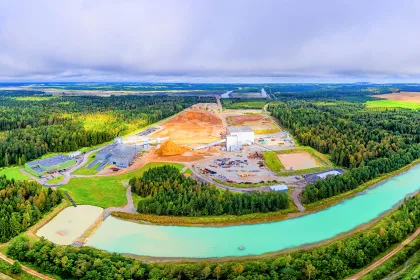Paul Rothschild, Chief Advisor at PLDD Platinum Luxury Design & Development and BlackRock Asset Services, discusses Dubai’s property market, the impact of COVID-19 and what’s in store.
Writer: Paul Rothschild, Chief Advisor, PLDD Platinum Luxury Design & Development
BOUNCING BACK STRONGEST
COVID-19 has opened the door to a revitalised property market in Dubai. Following years of stagnation or declines, wealthy international investors are snapping up luxury properties in a buying boom that continues to fuel Dubai’s economic recovery.
Dubai’s property market is flying right now, with luxury villas at the top of the most wanted pile. European buyers are particularly homing in on Palm Jumeirah, Dubai’s signature man-made island. They’re also increasingly interested in Dubai’s golf course estates.
Dubai’s property market remains buoyant with high investor confidence.
The property sector in Dubai has long been a bit of a rollercoaster. Since around 2014, it was steadily declining, and then, of course, when COVID-19 first hit and Dubai closed its borders, there was a sharp fall in sales.
However, as soon as the Emirate re-opened its borders, there has been an influx in transactions. Since then, they’ve continued steadily increasing, and they show no signs of stopping. Currently, the market is experiencing record transaction volumes and month-on-month gains.
Dubai was one of the first luxury destinations in the world to reopen to tourists and visitors back in July 2020. Rather than continuing endless lockdowns and shutting down entire sectors for lengthy periods, Dubai implemented an open policy along with strict precautionary measures and arresting those who blatantly do not respect such terms.
The Gulf Emirate has also facilitated a highly successful vaccination programme resulting in some of the highest rates in the world. These combined measures meant that, while tourists began returning in high numbers at the beginning of 2021, life has continued much more normally than in other parts of the world.
There was a corresponding rise in COVID-19 cases when tourists and overseas visitors began to arrive at the start of the year, but the combination of sensible measures and vaccinations have kept it well managed.
INVESTOR-FRIENDLY LEGISLATION BOOSTS INVESTOR INTEREST
Other reasons for the surging interest in Dubai from overseas buyers include more relaxed rules surrounding residency. The Government’s decision to allow firms to be fully owned by overseas investors has also boosted moves to the region.
This surge in new people arriving in Dubai has, of course, regenerated its tourism industry. This has long underpinned Dubai’s economy, which derives little wealth from oil in the way that neighbouring Emirates do.
According to IHS Markit, the resurgence of tourism and property investment in Dubai has helped business activity to bounce back and by April 2021, business activity had recovered to almost pre-COVID-19 levels.
There has been a considerable increase in buyer interest in luxury properties valued at more than $2.7 million (10 million dirhams). This is a marked change for a sector that has struggled for the last few years. According to Property Monitor, there were 90 transactions at this level in April 2021 alone, compared with the average annual number of 350.
For example, a luxury property on the Palm sold recently for 111.25 million dirhams (more than $30 million), making it by far the highest price achieved in Palm for many years. The next highest property available on the same block is a substantial modern villa boasting a 180-degree vista. It’s on the market for 100 million dirhams (just over $27 million).
European investors are increasingly interested in Dubai as a primary residence
Properties at this level were stuck at the height of the pandemic, but there is renewed optimism that the new wave of European investors will buy into the sheer luxury on offer in Dubai’s property market.
HNWI’s are ready to make Dubai their primary residence while managing their businesses elsewhere in the world. In April 2021, sales of luxury properties worth more than ten million dirhams rose by 6.7 percent compared with March. According to Property Monitor, 81 villas shifted on the Palm in April 2021 compared with just 54 for the entirety of 2020.
However, even with these impressive gains, the market is still behind the highs of 2014 before it declined. According to Morgan Stanley, the boom is set to continue into the foreseeable, thanks to, “robust demand, peaking supply growth and long lead times for new projects.”
A raft of favourable government reforms over the last year have also helped to boost the sector. This, along with attractive mortgage rates and the change in demand caused by the pandemic, ensures Dubai’s property sector will continue this pattern of growth for the rest of 2021 into 2022.
LUXURY VILLAS IN DEMAND ACROSS EMERGING AREAS OF DUBAI
It’s not just the luxury villa sector that is doing well. The entire market across the board is on an upward swing, with the first year-on-year price increase since 2015.
Sentiment will remain high among overseas investors thanks to the way Dubai is handling the pandemic crisis. This has turned attention towards the Gulf Emirate as a viable and positive place to invest funds.
Regional and international investors and buyers are relocating to Dubai’s luxury sector. The prices are attractive, the market sentiment is positive, and, in a world where many governments have struggled to get a grip on the pandemic, Dubai stands out as a success story.
This is morphing into historic success for Dubai’s luxury property market, although the focus remains on villas for most of the big buyers. This is likely due to new remote working routines calling for more space, nearby amenities, and plenty of green areas.
The pandemic is still, of course, a relatively unknown quantity for the future, and things could change yet again for global mobilisation and tourism. However, Dubai’s luxury property sector will likely continue this recovery phase in a sustained manner.

































